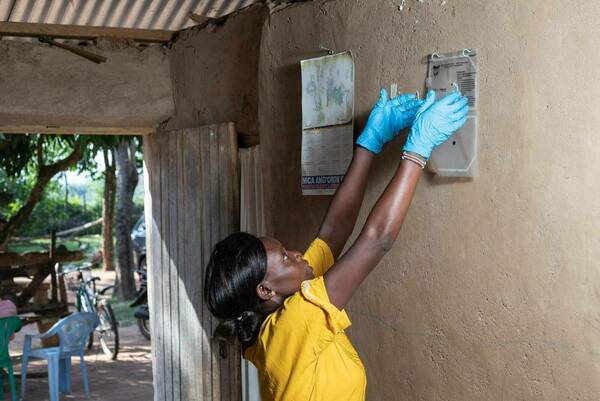Department of the Army awards $1.15 million for small business research and development to Tessellated
The U.S. Army selected Tessellated to receive a Small Business Technology Transfer (STTR) Phase II contract to develop technologies that address military modernization challenges. The contract was awarded under the U.S. Army STTR program, which encourages small, high-tech, U.S.-based businesses (in partnership with major research institutions) to provide cutting-edge research and development solutions in response to critical defense needs. As with many agile technology companies, Tessellated is uniquely positioned to address the U.S. Army's modernization priorities.
Tessellated seeks to commercialize a high-strength polymer film discovered in the College of Engineering at the University of Notre Dame. This advanced material has a wide range of possible use cases and is application agnostic, including ballistic armor, thermal management and implementation in composite parts for aerospace and automotive applications.
Federal SBIR and STTR programs are known as "America's Seed Fund," enabling early-stage startups to develop critical technologies further and bring them to market. They are one of the largest sources of early-stage capital for technology commercialization in the United States. They meet federal research and development demand while increasing the potential for private-sector commercialization.
Central to the STTR program is the partnership between small businesses and nonprofit research institutions, catalyzing formal collaboration throughout Phase I and II development. According to SBIR.gov, STTR's most important role is to bridge the gap between basic science performance and the resulting innovations' commercialization.
In 2022 alone, Tessellated received three SBIR/STTR awards from the Department of Defense and the Department of Energy. The aggregate funding under these awards totals more than $500,000, with Notre Dame Research benefiting $167,000 in sub-awards as part of the STTR program.
According to Tessellated's CEO, Kevin Craig, "These non-dilutive awards coupled with local matching funds will allow Tessellated to continue to develop further innovations and chart a course toward scaled production. We will begin distributing material to our first customers and development partners in 2023."
For more information about Tessellated, visit tessellatedinc.com.
Originally published by at ideacenter.nd.edu on March 21.
Latest Research
- NSF Cyber SMART’s fall meeting shapes fifth year of project, legacy and future plans, and adds new memberThe U.S. National Science Foundation (NSF) Cyber SMART center gathered for its fall meeting on the University of Notre Dame campus this September. The meeting served as a checkpoint with progress reports and new projects from research leads and students…
- Slavic and Eurasian studies professor wins Humboldt fellowship to research how Russia’s religious past shapes its presentWhen Russia invaded Ukraine on Feb. 24, 2022, Sean Griffin realized his second book needed a new title. Griffin, an associate professor in the University of Notre Dame’s Department of…
- Notre Dame’s R.I.S.E. AI Conference builds interdisciplinary collaboration to inform human-centered artificial intelligenceAs artificial intelligence (AI) transforms nearly every sector of society — from healthcare and education to governance and global development — a critical question emerges: How can we conscientiously design and deploy these powerful technologies to positively impact society? This…
- University of Notre Dame joins the Global Coalition of Ukrainian StudiesThe University of Notre Dame has joined the Global Coalition of Ukrainian Studies after signing a Memorandum of Cooperation (MOC), formalized on September 24, 2025, at the Ukrainian Institute of America in New York City. Notre Dame joined four other American…
- The University of Notre Dame’s Mendoza College of Business and Industry Labs team up to inspire national security manufacturing competitiveness in the regionThe South Bend - Elkhart Region is full of manufacturing companies that are poised to grow, and Executive Master of Business Administration (EMBA) and Master of Business Administration (MBA) students at the University of Notre Dame are finding innovative ways to contribute to that growth. Earlier…
- Notre Dame research informs WHO conditional recommendation for spatial repellents in malaria vector controlThe World Health Organization (WHO) recently announced a “conditional recommendation” for spatial emanators, also known as “spatial repellents,” in the fight against malaria. This key determination was informed by spatial repellent studies that included the Advancing Evidence for the Global Implementation of Spatial Repellents (AEGIS) Project in Kenya, led by the University of Notre Dame and funded by Unitaid. The findings from this particular study were recently published in The Lancet.













